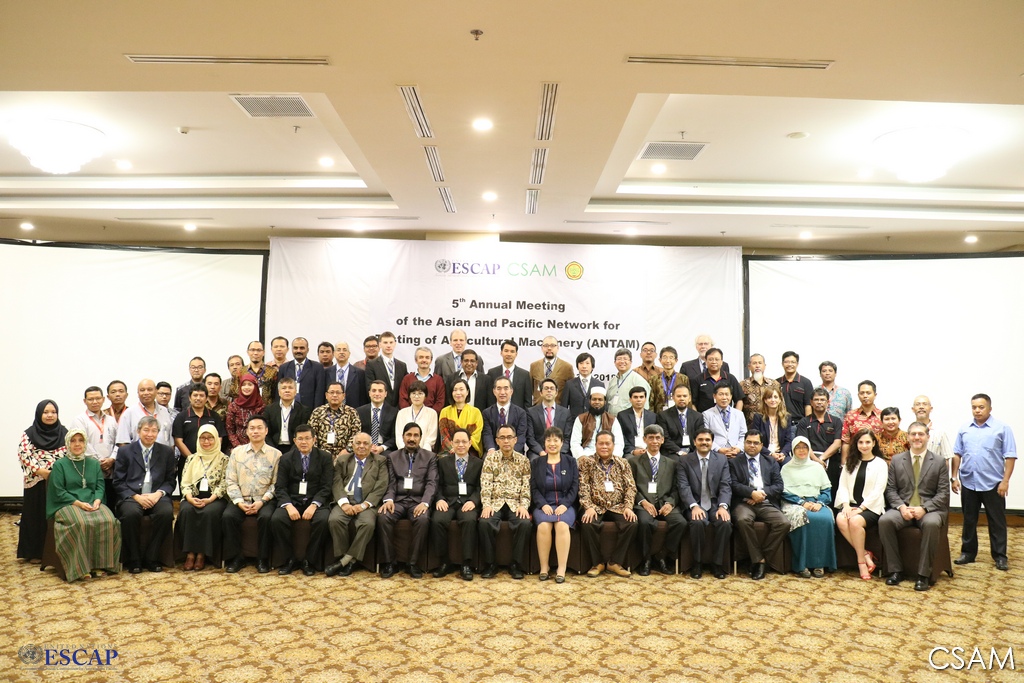First set of institutional arrangements to promote sustainable agricultural machinery adopted at regional UN meeting

The Fifth Annual Meeting of the Asian and Pacific Network for Testing of Agricultural Machinery (ANTAM) adopted its first set of rules and regulations for enabling the establishment of accredited stations and mutually recognized standards amongst participating countries in the region.
Organized by the Centre for Sustainable Agricultural Mechanization (CSAM) of the United Nations Economic and Social Commission for Asia and the Pacific (ESCAP), in collaboration with the Indonesian Center for Agricultural Engineering Research and Development, the meeting allowed regional agriculture experts to comprehensively assess standardized ANTAM codes for power tillers, misters-cum-dusters and paddy transplanters, to better promote sustainable agricultural practices in the region.
“By leveraging the expertise of existing testing stations and working towards regional integration through the setting of standards, the work of ANTAM promotes regional integration, eases the barriers of trade and invests in safe and environmentally-friendly agricultural machineries to support the attainment of the Sustainable Development Goals including SDG2: Zero Hunger, SDG13: Climate Action and SDG17: Partnerships for the Goals,” said Head of CSAM Dr. Yutong Li.
The Asia-Pacific region is undergoing rapid agricultural mechanization to meet the increasing demand for more and better food, as well as address labour shortages and the impacts of climate change. However, the lack of uniform standards in agricultural machinery poses threats to sustainable agricultural development. Unsafe and inefficient machinery jeopardizes the integral agricultural development in the Asia-Pacific region. Smallholder farmers also undertake disproportionate risks in food production losses and injuries when resorting to inadequate machinery.
Established in 2013, ANTAM aims to raise the level of agricultural productivity and income of smallholder farmers in the region. Through its secretariat at CSAM, it supports the transformative approach promoted by the 2030 Agenda for Sustainable Development by integrating local agriculture needs with major international standards and builds on stakeholder partnerships to find cross sectoral solutions. The open regional network is composed of national government bodies, research institutes, associations of agricultural machinery manufacturers and farmers organizations.
